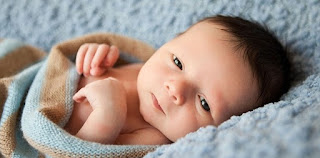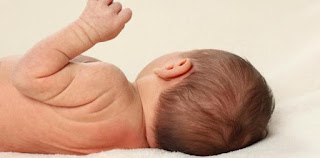My baby is very cute and adorable, but lately the frequent change of her singing, playing with pleasure and suddenly hit and bite me. If you hit the mother or father may not be a problem but if you hit a playmate might be a serious problem if it hurt and cry.
My baby often hitting and biting his playing time is it normal? How to solve this problem in order not to do it again?
There is no specific explanation of a doctor or specialist for this problem, but the experience of some parents when the baby enters the age of 12 months is for babies who often do things such as hitting and biting stuff in pegangnya. At the age of 1 year, you have to be careful when giving toys items for baby.
Babies often hitting and biting is a normal condition, but it is to tackle and stop the bad habit is in need of attention and patience. You need to find out what's behind the little guy doing bad.
According to child development experts, there are many possible explanations could happen to your baby at this time. Your baby can probably just hit or bite because of the following:
- Baby is teething, painful teething babies often do in regard it reduces pain such as biting and hitting.
- Your baby is very tired or too excited and he wants to play alone without being disturbed by anyone in his own room.
- Baby biting and hitting because of his toys or his place in use by another child and he was not pleased.
- Babies may bite and hit because it has a playmate who previously did the same thing, so he emulate.
- Babies like to say that he loved you but can not say with words that have not been clear.
Trust me with patience and perseverance the habit of hitting and biting it will disappear by itself over the next few months.
Although this behavior is considered normal, but there are some things you can try to limit the habit of biting and hitting your baby:
1. Baby wants more attention.
If your baby the bad habit of biting and hitting during the day and he has not been sleeping, it could have been a sign that he was very tired and wanted to sleep in her room.
2. Do not fight with violence.
Babies who do not hit or bite at opponents with violence. If you scold your child certainly does not mean to stop but will usually grow angry and he will do so continuously. If you reply, although with not tight then the message for babies that hitting and biting is a good thing and want to do it every time.
3. ACTION quickly
If your baby hit his playmate, say please and pick up your child away from his playmate. If your baby is hitting and biting your own, try to detract from your gendingan and let stand for a moment in a safe place.
4. You have to stay calm
Scold and shout at any time is not the best solution, your child will not know that it was you mad and it will do the same.
5. Inform correctly
If the baby hit you or a playmate, try to take tanggannya lovingly. Teach gently brushed ie with tanggannya with pets such as cats. Hopefully the baby will calm down and this is the message that stroke is better.
6. You pretended to cry
When you hit your baby and bite him, try to pretend to cry. Maybe the baby does not know what that meant, but he had a strong instinct. Your baby's crying in front of the message that was beaten was very ill.
7. You have to be realistic
Baby you do not know what is in doing it was wrong, so beg your baby to apologize is the less he understood. You have to be realistic and do not force your baby to do that he has not been able to.












